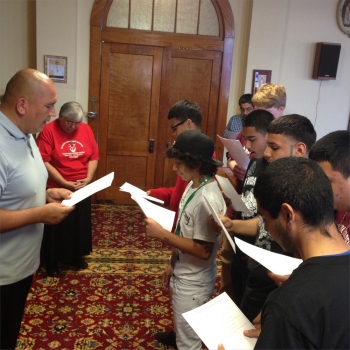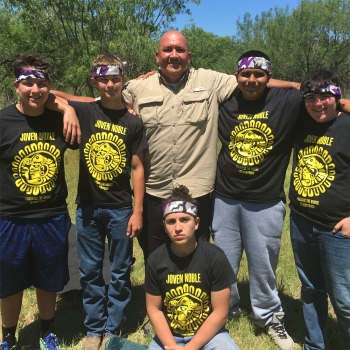Youth Services and Programs
MP360 provides a range of programs, services and personal caring for at-risk young people. Our mission-driven focus involves taking each client where they’re at, working with them toward meeting certain specific positive behaviors and goals, and celebrating the progress made toward authentic adulthood. First, experience tells us something of where our juvenile clients are at… they have all experienced varying degrees of brokenness and childhood trauma. What is trauma? “Trauma” refers to a single event, multiple events, or a set of circumstances that is experienced by an individual as physically and emotionally harmful, stressful or threatening and that has lasting adverse effects on the individual’s physical, social, emotional, or spiritual wellbeing. We spend significant time getting to know each client as a person and begin to understand their unique circumstances and experiences of trauma. MP360 follows a “trauma-informed” approach or intervention. There are three key elements of a trauma-informed approach: realizing the existence and prevalence of trauma; recognizing how trauma affects all persons involved; and responding by putting this knowledge and understanding into practice.
MP360 also applies a program curriculum that incorporates evidence-based practices. “Evidence-based” practices mean that the approach and/or treatment employed must be considered evidence based; that is, it must show evidence of positive outcomes based on peer-reviewed studies or other equivalent strong methodology. For example, the curriculum practiced by MP360 is the Joven Noble (‘Noble Young Man/Woman’) curriculum developed primarily by Jerry Tello. The Joven Noble curriculum has been independently studied and verified for effectiveness in helping at-risk young people like those coming to MP360. For a more complete description, visit the web page.
Our program takes place over a 10 week period with one hour sessions each week. The group of clients normally meets in a classroom setting at a convenient location. The MP360 leaders/facilitators have each received substantial training and possess relevant personal experience which enables them to work effectively with the clients. When our program strikes a chord and a light bulb comes on for a client, we cheer them on. When a young man makes peace with a rival gang member, we heartily rejoice. When a young person becomes a positive influence in his or her family, we celebrate with them. This is because the young people who attend our program are more than clients, they become more like family.
What do our young friends get out of the program and how do they respond? They learn to trust more. They laugh and sometimes cry. They experience real caring. They, in turn, care for others more genuinely. They build self esteem. They learn coping skills and find better ways to deal with their pain. They let go of the anger and find healing in forgiveness. They open up, share their faith experiences and discover that God has a plan for their life. They become hopeful. They develop a new and better vision of their future. And they start putting into practice what they’ve learned.





